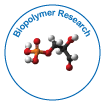开放获取期刊获得更多读者和引用
700 种期刊 和 15,000,000 名读者 每份期刊 获得 25,000 多名读者
抽象的
Biopolymer-Based Nanoparticles for Targeted Drug Delivery: Advancements in Precision Medicine
Kirty T
Targeted drug delivery systems have emerged as a promising strategy to enhance the efficacy and minimize the side effects of therapeutic agents. Biopolymer-based nanoparticles offer a versatile platform for the controlled and targeted delivery of drugs to specific sites within the body. This abstract highlights the research and development of biopolymer-based nanoparticles for targeted drug delivery, focusing on their potential in advancing precision medicine. The investigation revolves around various types of biopolymers, including chitosan, alginate, gelatin, and poly(lacticco- glycolic acid) (PLGA), which exhibit favorable biocompatibility, biodegradability, and tunable physicochemical properties. These biopolymer matrices are engineered to encapsulate a wide range of therapeutic agents, such as small molecules, proteins, peptides, and nucleic acids, enabling their controlled release and site-specific delivery. The synthesis and functionalization of biopolymer-based nanoparticles are explored, with a particular emphasis on their ability to enhance drug stability, prolong circulation time, and improve cellular uptake. Surface modification strategies, including the conjugation of targeting ligands and stimuli-responsive coatings, are investigated to achieve selective drug delivery to specific cells or tissues. The evaluation of biopolymer-based nanoparticles encompasses their physicochemical characterization, drug loading efficiency, release kinetics, and cytotoxicity. Furthermore, in vitro and in vivo studies are conducted to assess the therapeutic efficacy, biodistribution, and pharmacokinetics of these nanoparticles in disease models. This abstract concludes by emphasizing the potential of biopolymer-based nanoparticles as a versatile and effective platform for targeted drug delivery. The ability to achieve site-specific drug release, minimize off-target effects, and enhance therapeutic outcomes has significant implications for precision medicine. The challenges and future prospects for optimizing biopolymer-based nanoparticles in terms of stability, scalability, and clinical translation are discussed, with the aim of accelerating their integration into clinical practice. The development and utilization of biopolymer-based nanoparticles hold great promise for revolutionizing drug delivery approaches and improving patient outcomes in precision medicine applications.

 English
English  Spanish
Spanish  Russian
Russian  German
German  French
French  Japanese
Japanese  Portuguese
Portuguese  Hindi
Hindi